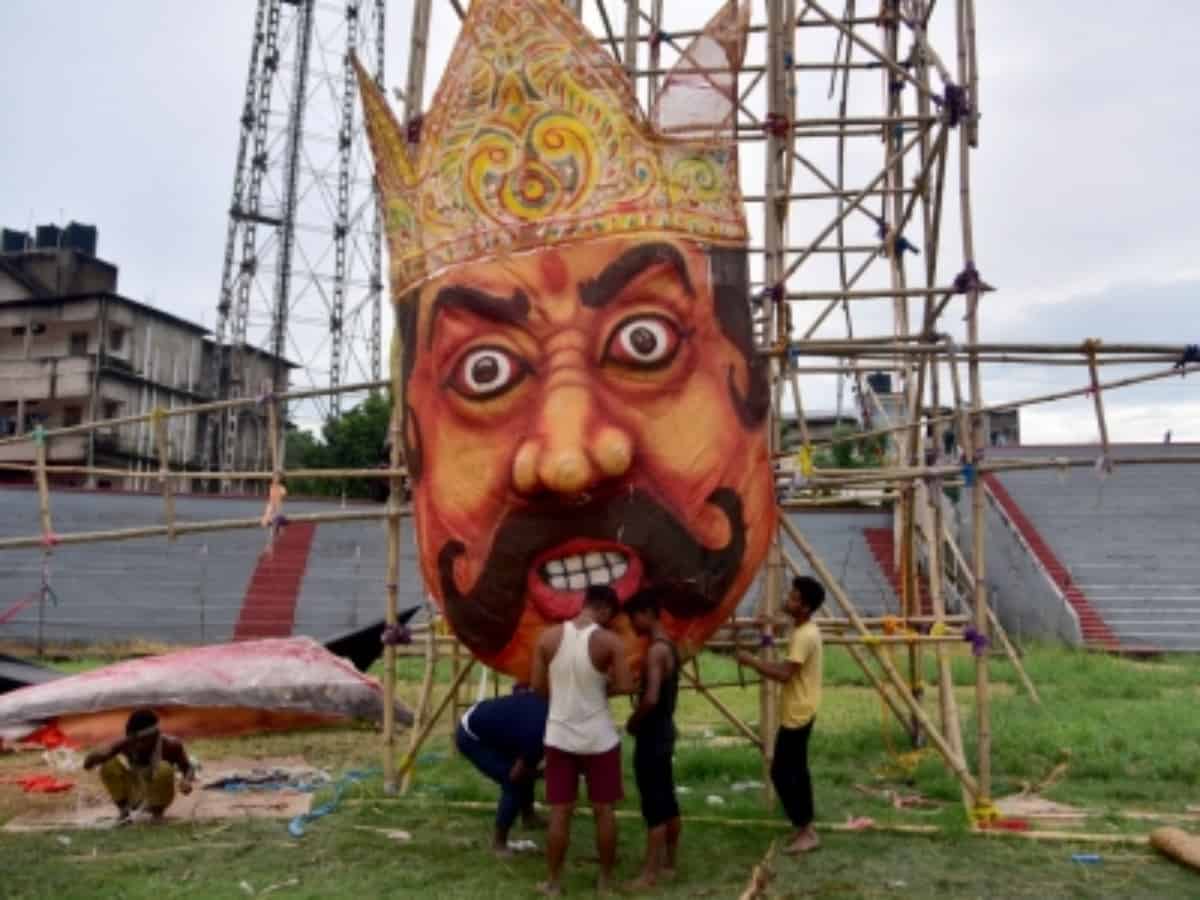
Jaipur: At a time when a different look of Ravana has become the talk of the town in Bollywood flick ‘Adipurush’, a Rajasthan-based organisation has decided to change the centuries-old tradition of burning an effigy of Ravana by putting crackers into its effigy. This organisation has made a 25-feet-long statue, and a nine-feet wide pyre has been constructed on which Ravana will be put to sleep and his funeral rites will be performed with vedic ways.
The pyre has been made using cow dung, sandalwood, basil, desi ghee etc.
Pandit Vishnu Dutt Sharma, Assistant Director Agriculture Marketing and Secretary Agriculture Produce Market Nohar, who made this initiative, said, “Festival of Vijayadashami has become a festival of insult to the mortal body of this great hero Ravana, while the harmful cracker industry is also becoming a means of earning crores of rupees.”
“Ravana was a great hero, an exclusive devotee of Lord Shiva and was excellently austere. Being an integral part of Lord Rama’s story, Ravana’s dahan in Ramlila had become an essential part, which should be retained but its continuity should be done following the holy scriptures. According to it, the norms should be maintained so that after Ravana’s death, this great warrior is not insulted and the funeral yagya does not become the centre of ridicule.”
“In our ancient scriptures, there is no more authentic text than Valmiki Ramayana which speaks of the holy character of Lord Rama. In fact, the description of performing a funeral yagya after putting Ravana to sleep in detail is clearly found and it is also described that this rite was performed by Vibhishana while Lord Ram was not involved in this,” he added.
“Funeral of Ravana by Vedic method through funeral yagya is also found in Ranganatha Ramayana and Kamba Ramayana, from which it is clear that not Sanskrit, but Telugu has the same description on his last rites. Our ancestors used to burn Ravana making Ravana’s effigy but it was different and this proof is found in the scriptures also,” he stated.
“Anyway, the use of firecrackers increases noise pollution, while the funeral procession by adding cow’s ghee to the dung and sandalwood sawdust is more likely to make the atmosphere in the village pure in the time of change of seasons,” he said.
“In our funeral yagya, no one is raised and cremated, even if we do not talk about the scriptures, no one has seen, heard, or found any funeral where a body is raised and then cremated. The detailed description of the funeral yagya of Ravana is found in the scriptures, which tells that Lord Shri Ram himself ordered Vibhishana that Ravana was a great warrior, so his funeral yajna should be performed with proper scriptural method,” Sharma observed.
Lord Shri Ram himself did not go to the city of Lanka to participate in this yagya due to the discipline of 14 years of exile, he concluded.



